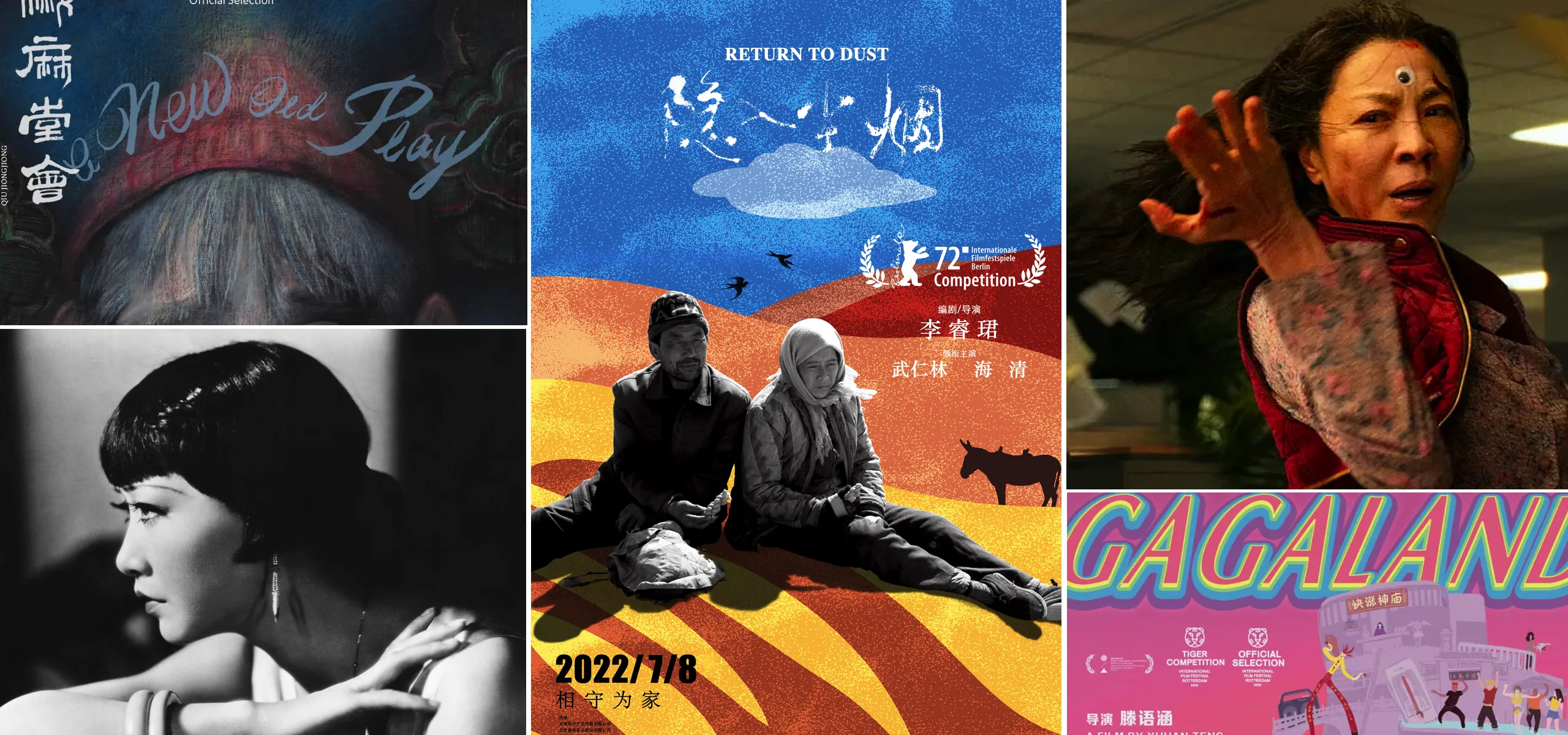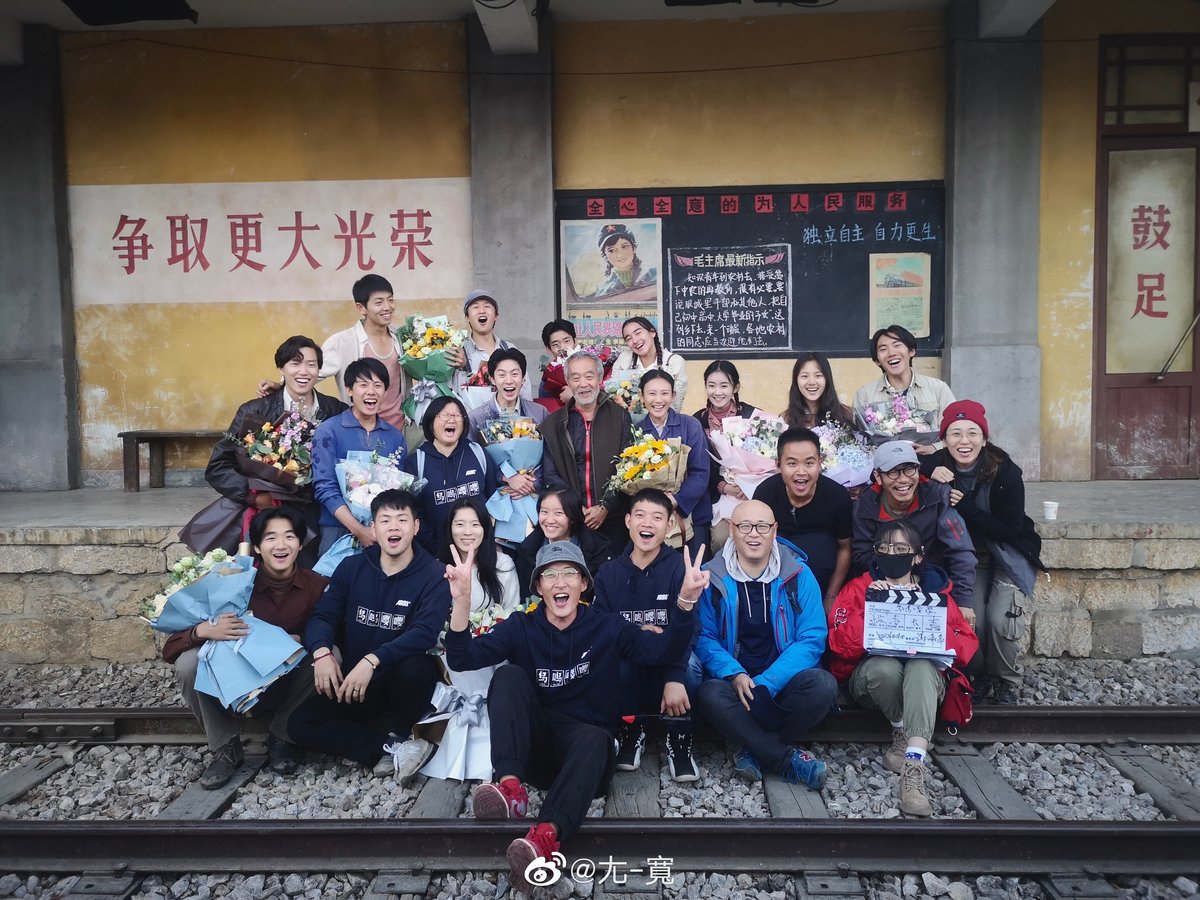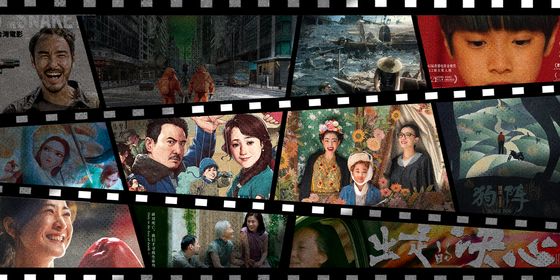Indie hits and notable flops: Here is a roundup of big happenings in Chinese and diaspora films this year
For many Chinese film fans and people in the industry, 2022 has been disappointing—cinemas around the country suffered a heavy blow from the strict pandemic-control policies that restricted people’s movements until recent weeks, while few quality films, domestic or imported, made it past the censors to light up the big screens.
In November, cinemas across China raked in a mere 568 million yuan, a catastrophic 70 percent drop compared to November 2021. Meanwhile, a wave of movie theaters around the country in cities big and small have announced their closure. Among those still standing, many, according to a recent TWOC report, have had to launch innovative side ventures—opening up the venue for other live performances or even as a napping space—to stay afloat.
In August, the China Film Administration (CFA) collaborated with online ticketing platforms to pump a total of 100 million yuan in coupons offering discounts for Chinese filmgoers, but even that did not restore the market to its former glory. As of December 20, China’s annual box office had earned a total of 29.1 billion yuan, not even half of the 64.1 billion yuan it raked in in 2019. Here, we take you through some of the ups and downs in Chinese and diaspora films this year.
Top-rated on the big screen
Among the lucky few releases that managed to make it into movie theaters this year, Li Ruijun’s Return to Dust, a slow tale of two farmers’ lives in China’s Northwest, took audiences by storm. Dotted with both poetic musings and barren rural realities, the film premiered at Berlinale earlier this year and was released in Chinese theaters in July. Although it only made 109 million yuan at the box office, a small fraction of the 4 billion yuan earned by this year’s patriotic blockbuster The Battle At Lake Changjin II, Li’s low-budget production earned rave reviews from critics and an 8.5 out of 10 on popular film review site Douban, a rare occurrence for domestic theatrical releases in recent years.
The majority of reviews lauded Return to Dust for offering a realistic but humanized depiction of life in rural China, while a few voices complained that it perpetuates the stereotype of poverty in China’s Northwest, finding its tragic ending exaggerated. In September, the film, which by then was only available online on major streaming sites, was taken off all platforms without a clear explanation.
Notable flops
In mid-November, a Weibo blogger posted a photo of an empty movie theater, with the caption, “I am here to support Chinese films. Cinemas nowadays are too quiet.” The film he was to see that day was The Tipping Point, a crime story whose main message was to glorify the Chinese government’s crackdown on corruption and organized crime. Soon after, he retweeted his own post saying, “I finished it. It was so bad that I cried. I cannot keep up my support, sorry.”
The abovementioned Weibo post, quoted in a November article on film blog Room Number 3 Ticketing Staff, attracted thousands of shares and comments, with moviegoers largely sharing the OP’s sorrow. The blog’s author criticizes the film as failing to humanize the characters, “a common ailment” of films made to support government ideology; and for failing to delve into the complex or dark subject matters, instead only focusing on praising the country’s legal and criminal investigation systems.
But this was not the worst-performing film of the year. Ten Years of Loving You, a supposedly romantic movie released on Valentine’s Day following the twisted fate of a pair of childhood sweethearts who ended up in marriage, only squeezed a pathetic 2.8 out of 10 rating from Douban users. What viewers were generous with, however, were snarky comments. “It feels like the script was autogenerated by a website,” reads one. Notably, though, each of the films just mentioned made more at the box office than Return to Dust.
If these films shocked viewers with their poor quality, then a TV series called Gentlemen of East outright enraged them. An infamous scene shows the protagonist pulling on a female character’s bra strap to stop her from falling; in another, a man who has had a sexual encounter with a foreign woman is applauded for “gaining glory for the country”...Filled with cringey lines and sexist jokes that failed to make audiences laugh, the show was so notorious that it became a top trending topic on Weibo several times.
Director sharing films for free
Independent documentary filmmaker Jiang Nengjie was the first to become known as a “netdisc director” in 2020, when he uploaded his film Miners, the Horsekeeper, and Pneumoconiosis, a documentary following miners who suffer from lung disease onto online file storage service Baidu Cloud, and shared the link for free.
This year in August, another documentary director followed suit: Wei Dan shared a link to his film The Ark, premiered at the International Documentary Film Festival (IDFA) in Amsterdam, which follows his grandmother’s battle with a grave illness during the beginning of the Covid-19 pandemic. For both directors, even though the act of sharing made them famous, it is a move out of desperation. While the films’ critical look at social issues slims their chances of navigating the CFA’s censorship, the independent directors who self-fund their projects are also running out of money, without resources to launch the films into other forms of distribution. Under these circumstances, sharing for free becomes the last chance for these films to find an audience.
Another director who was in the news for putting message before money is Li Yang, whose 2007 film Blind Mountain, a story of a young woman trafficked to a remote village, came back into the spotlight this spring following the news that a woman was found chained to a shed in Xuzhou, Jiangsu province, likely a victim of trafficking. After the news broke, a pirated version of Blind Mountain circulated online, and Li himself announced on social media that he would not seek to enforce his copyright. Instead, he encouraged everyone to share and watch the film in order to bring greater awareness to the issue of human trafficking.
Films that “disappeared”
In August, Tian Zhuangzhuang, a well-respected 70-year-old director, revealed as part of an 80-minute interview with Tatler that it had been two years since he wrapped up shooting for his new film Cry of the Birds and sent the film for CFA review, but to this day, he has heard nothing back. For any film that wishes to be in Chinese cinemas, the review is a mandatory step in order to obtain a “dragon label,” a logo to be put at the opening of a film to signify that it has the CFA’s permission to screen in public.
The two-year radio silence from the CFA, Tian says, “has made me, again, disappointed in film. I don’t know how I can even get an answer.” Film bloggers have counted off several other recent films that are well into or past the production stage only to disappear from view, many of them new works by famous directors with many award-winning titles under their belts, like Tian.
The list includes English by Chen Chong in which a young man taught English in rural Xinjiang during the 1960s; Above the Dust, a story of a rural family directed by Wang Xiaoshuai, whose previous works were regulars at Cannes and Berlinale; and Ripples of Life by young director Wei Shujun, a tale of how a film crew disturbed the peaceful life in a small town, which premiered in 2021 at Quinzaine des Réalisateurs, a parallel selection of the Cannes Film Festival. Though not confirmed, netizens suspect most of these films to be suffering the same fate as Cry of the Birds.
Scenes that are deleted
Fantastic Beasts: The Secrets of Dumbledore is among the very few foreign blockbusters screened in China this year. But not in its entirety: a six-second scene between Dumbledore and Grindelwald, which reveals the characters to be gay, was deleted.
Chinese viewers might be used to this kind of treatment by now. Earlier this year, many tuned into a re-release of the sitcom Friends on Chinese online streaming platforms, including Tencent, only to find that plots containing LGBTQ+ characters had been heavily deleted to the point that it affected the plotline. Notably, a decade ago, when the same Chinese audiences watched Friends on streaming platforms, the scenes were intact.
Anna May Wong appears on US quarters
The face of Anna May Wong (1905-1961), commonly considered the first Chinese-American star in Hollywood’s history, is now featured on some US quarter-dollar coins. Wong has thus become the first Asian American to be featured in the country’s currency. These coins are part of the US Mint’s American Women Quarters Program, a new initiative that will release quarter coins through 2025 to commemorate women who made special contributions to the nation.
Time names Michelle Yeoh “Icon of the Year”
The 60-year-old Chinese-Malaysian actress has long been recognized internationally for her action-filled performances in Tomorrow Never Dies (1997), Crouching Tiger, Hidden Dragon (2000), and Memoirs of a Geisha (2005), “But, until Everything Everywhere All at Once, which premiered in March, she had never been No. 1 on a Hollywood call sheet,” announces the article on Time that names Yeoh as the 2022 Icon of the Year.
“It shouldn’t be about my race, but it has been a battle,” Yeoh tells Time. “At least let me try.” Everything Everywhere All at Once, which has received a glowing 95 percent rating on Rotten Tomatoes, stars Yeoh as an Asian-American laundromat owner who, while under tax audit by the Internal Revenue Service, unites different versions of herself across the multiverse to fight a common villain. There is even hope and speculation that Yeoh’s role might make her the first Asian-American woman to win Best Actress at the Oscars next year.
Three Body Problem trilogy adapted for the screen
Word is out that the Three Body Problem trilogy, penned by Liu Cixin and arguably China’s most famous work of science fiction, is coming to Netflix. Produced by True Blood’s Alexander Woo and Game of Thrones writers David Benioff and D. B. Weiss and starring an international cast, this ambitious adaptation has wrapped filming in October 2022 and is expected to come out in 2023.
This will not be the first adaptation of the trilogy for the screen. As early as 2014, a fan-made Minecraft animation, My Three Body, had already shown up on Bilibili. In the beginning of this month, fans in China anticipated the release of a domestically produced Three Body Problem animation series on December 3, but the series’ representatives came out with a statement on Weibo the day before, announcing its delay without giving a new release date or an explanation.
Young and Upcoming Chinese filmmakers making rounds at international festivals
Despite the difficulties in making and distributing films domestically, Chinese filmmakers continue to be seen in major film festivals around the world.
Among them, documentary director Qiu Jiongjiong stunned the jury at the Locarno Film Festival with his first narrative feature film, A New Old Play. New York Times critic Austin Considine praised this dramatized recount of Qiu’s grandfather’s life as “drawing as much from Brecht and Beckett as from cinematic traditions.” He writes in a review, “At once tragedy and farce, it breathes new life into a story as old as civilization.”
At this year’s IDF, young Chinese directors turned their lens toward family. Siyi Chen, through her debut film Dear Mother, I Meant to Write about Death, shows the delicate conversation about death with her mother who was diagnosed with breast cancer. In Is There a Pine on the Mountain, Liu Chongyan documents a visit from her boyfriend’s mother, examining familiar trauma and masculinity. Meanwhile, Will You Look At Me probes into love and acceptance between mother and son, a poignant but poetic essay on queerness in the Chinese family.
The year is coming to an end with the news that Gagaland, a rags-to-riches story based in the street dance scene among working-class youngsters in China’s small towns, will feature at the main competition of the International Film Festival at Rotterdam. The film boasts an unusual visual style: wild and carefree dance scenes, “all rapid-fire social media feeds and kaleidoscopic split-screens,” introduces the festival’s official website. “Bouncing between these cyber-surreal sequences and its Broadway-style street story, this charming show-stopper is sure to get you on your feet.”


















